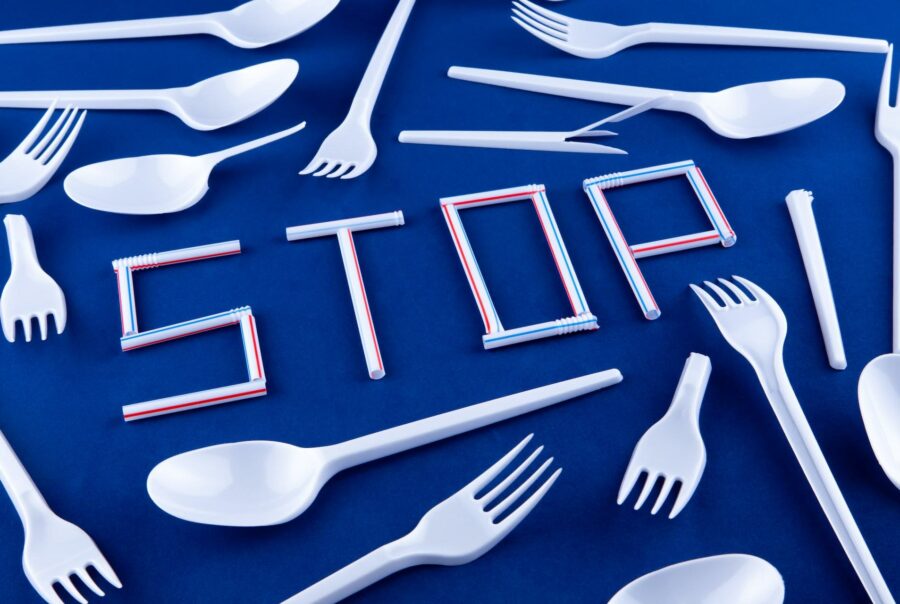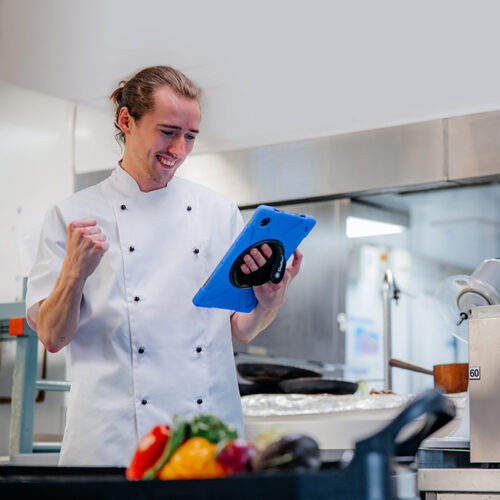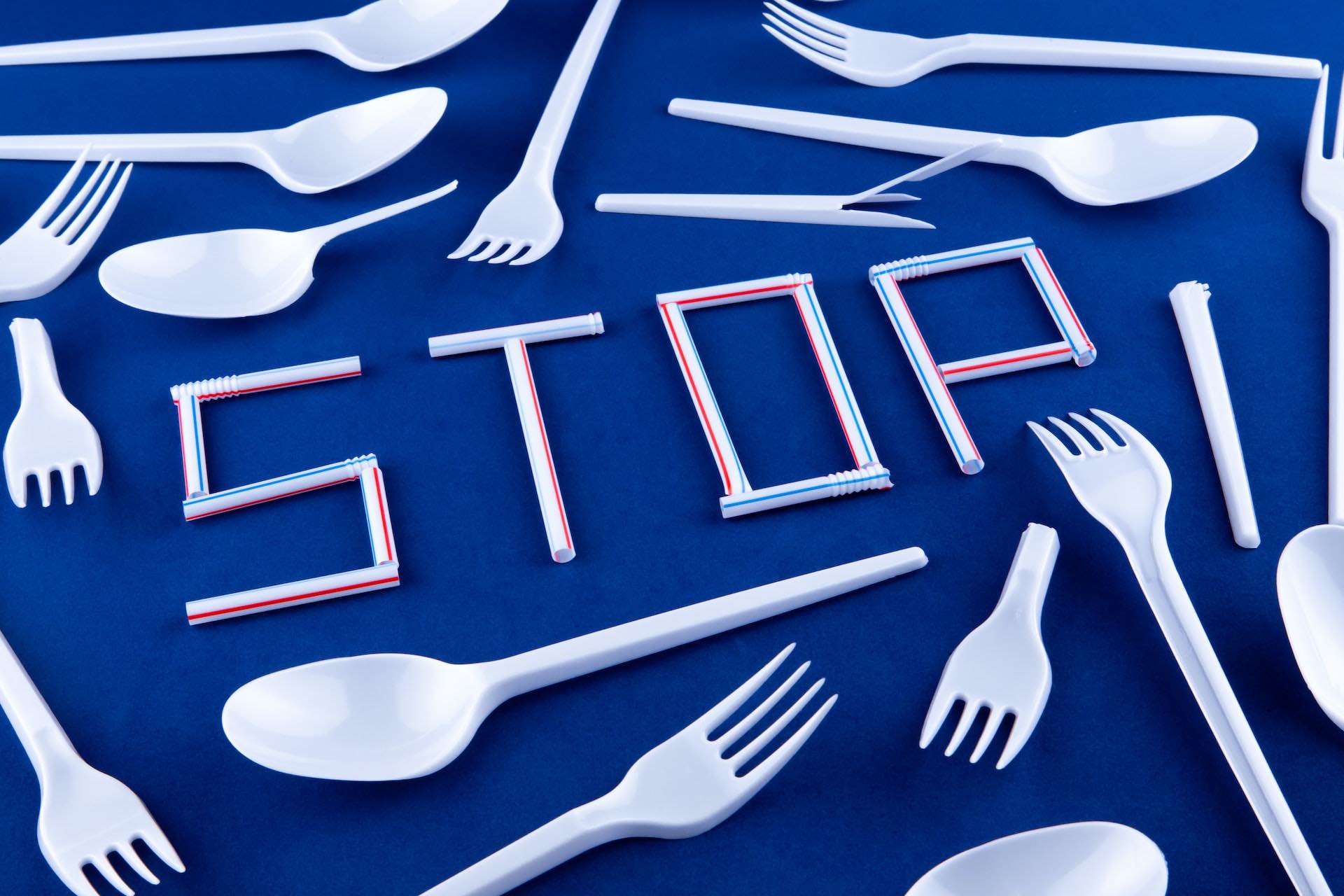To paraphrase Dylan – The times they are a-changin’ so you better start swimmin’!
The days of fish and chips in a polystyrene container with a plastic fork spiked into the lid are gone. The UK Government is banning a wide range of single-use plastics that have become part and parcel of the food industry in previous decades.
If your business doesn’t adapt now, this could take you by surprise and disrupt your work methods and even food and waste management. However, if you are proactive, this is an opportunity to springboard your food service business to the next level.

What is the new legislation and why is it happening?
The UK government has announced a ban on single-use plastic plates, cutlery and trays in England, starting from October 2023. This follows similar bans in Scotland and Wales.
What plastic items are banned in the legislation?
- Cutlery (forks, knives, spoons, chopsticks and other similar utensils)
- Plates and bowls
- Beverage stirrers
- Food containers made of expanded polystyrene
- Cups made of expanded polystyrene
Why these items? They are hard to recycle – and, arguably, easier to replace with more responsible alternatives. In England alone, 2.7 billion items of single-use cutlery and 721 million single-use plates are used per year. Only 10% of these are recycled – most end up in landfill or incineration, releasing harmful chemicals into the air. When plastics go to landfill, they tend to bind with environmental pollutants. The plastic moves through the food chain, and toxins accumulate in animal fat and tissue. What’s more, we have already filled our seas with plastic that will be there for centuries.
What isn’t included? The legislation doesn’t ban pre-packed shelf-ready food in plates, trays, and bowls. Single-use items made from other materials aren’t included either.
However, just because they aren’t included doesn’t mean you shouldn’t consider phasing them out. Here’s why to join the farewell party and embrace leaving single-use items behind!
The legislation is your springboard!
Other than, obviously, looking out for our environment, it’s in your interest to embrace this new food waste legislation and even go further than the regulations require. Why?
Save money: Containers that go straight into the bin after one use are not economic sense. These are financially challenging times, and waste could be the (plastic) straw that breaks the donkey’s back for many UK food service businesses. What’s more, the UK Government has plans for an Extended Producer Responsibility Scheme – which will incentivise producers to use packaging that can be recycled and meet higher recycling targets.
Work smart: A lot of time and effort goes into procuring single-use items. Better organisation and planning, looking at how you can reuse and recycle, means less waste and less work.
Build your reputation: Your reputation with customers is the bedrock of your business. They want a company’s values to be upfront – and to see what they are doing to back that up. Realistic, not idealistic. Going above and beyond will show authentic concern.
As you sit down and discuss how you can set a path for the changing horizon, what are the first steps?
Make a road map
This is a big opportunity to rethink things from the bottom up – make reduction of single-use items an important part of a global food-waste strategy.
Why not carry out an in-depth overhaul of your stocktaking methods? The food service industry in the UK throws away over 2 million tonnes of good food each year – a statistic we can tackle as we rethink using single-use items. By accurately logging what food and other items you use, you can determine where waste occurs and transform your environmental impact.
In a best-case scenario, you might be able to remove the need for single-use items altogether. For example, switch to reusable beverage cups, or perhaps bring in a scheme where regular customers can borrow a reusable takeaway coffee cup for a deposit (if they have forgotten their own!).
What’s the other option? If it is impossible to cut out single-use items, think out of the box rather than just switching to single-use items made of alternative materials – many other single-use materials can also damage the environment.
- First, try to reduce demand. One example would be to have a separate charge for a single-use coffee cup.
- Next, consider which materials the items are made from, and do some research to ensure they have the lowest environmental impact. You might want to check, for example, if they are certified by the Forest Stewardship Council.
- Finally, make sure that you make it easy for your staff and customers to recycle or compost single-use items.
It’s time to change
Customers want to buy from sustainable food service businesses – by taking single-use items and food waste management seriously, you will attract new and loyal customers.
This new legislation can be a motivation to look in-depth at how you run your business and where you can take action to improve your environmental impact.
Returning to what Dylan sang – He that gets hurt will be he who has stalled.
In other words, if you don’t embrace the new world of responsible procurement and waste management, it could damage your business. It’s time for your food service businesses to adapt and thrive in these changing times.
DigiTally is a stocktaking app that has helped food service businesses across the UK and Ireland dramatically decrease their food waste and CO2 output. By fully digitising stocktaking, you can identify the sources of waste and respond effectively.
Book a 30-minute chat with Patrick to learn more about how we can work together to take the next step in improving your impact.




